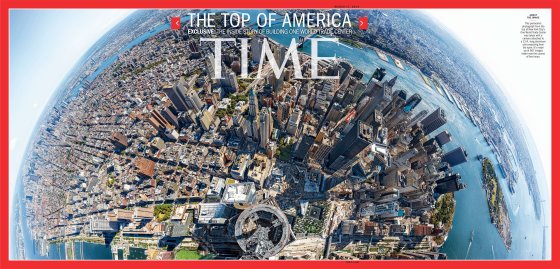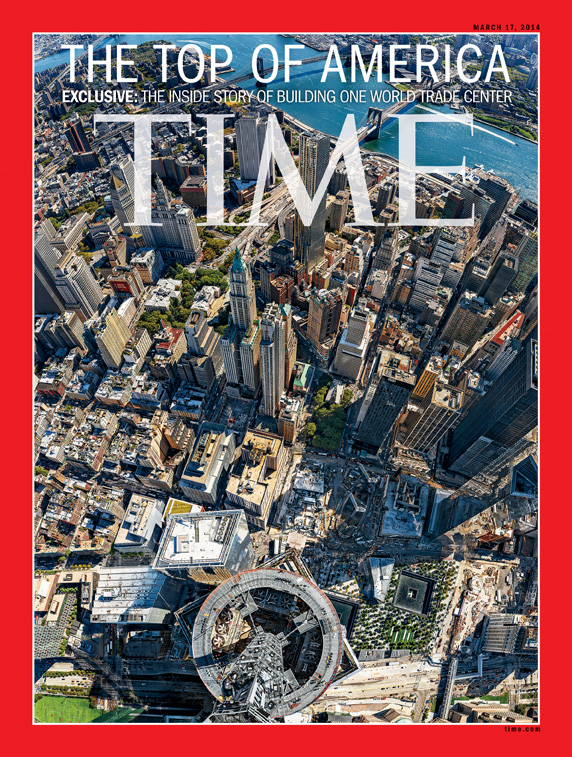
After 12 years of anticipation, the tallest skyscraper in the Western Hemisphere is ready for its closeup. How 10,000 workers lifted 104 floors, gave new life to an international symbol and created one spectacular view
Introduction by Richard Lacayo
For years after the 9/11 attacks, nearly all the activity at Ground Zero was downward—digging through the piles of debris, excavating a vast pit to restore the ruined transit lines, preparing the foundations for the new buildings that would emerge there. Even the memorial that opened in 2011 was an exercise in the poetics of descent—two vast cubic voids, each with water cascading down all four sides, carrying grief to some underground resting place.
The memorial has turned out to be a lovely thing, but what the site still needed was something that climbed, something that spoke to the idea that emotional burdens might not only be lowered into the ground but also released into the air. Now we have it: One World Trade Center, the glass-and-steel exclamation point, all 1,776 feet of it, is nearing completion close to where the Twin Towers once stood. No doubt the new building’s official dedication will open the way to a necessary debate over its merits as architecture and urbanism, its turbulent design history and the compromises made over the long years it took to get the thing built. But in one important respect, One World Trade Center has already succeeded. It has reclaimed the sky. And this is the view from there.

